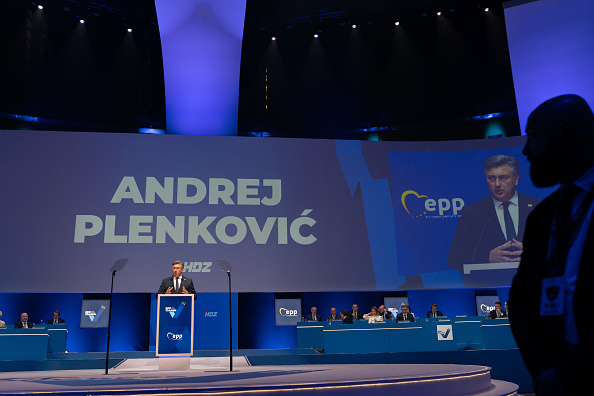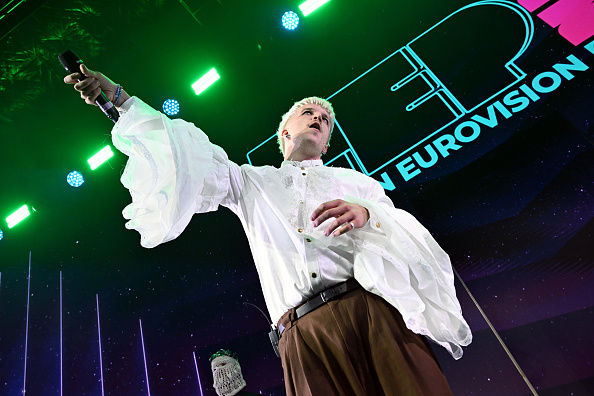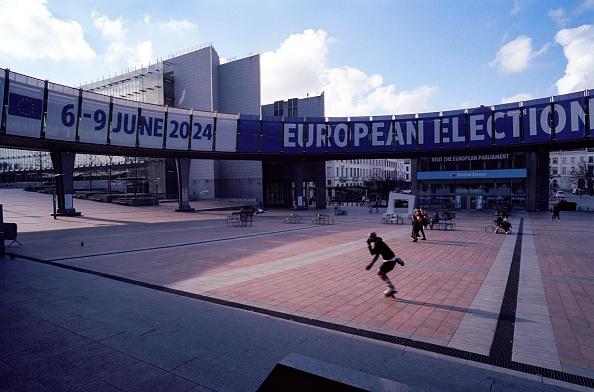The European Union’s current leaders could co-operate with “some” hard-right leaders after [the European Parliament] June elections, European Council President Charles Michel told a Copenhagen audience.
Michel’s comments at the Copenhagen Democracy Summit on May 14 represented a departure from previous statements by his Liberal Renew Europe bloc.
Renew Europe’s leader Valérie Hayer had strictly ruled out any post-election coalition possibilities with the Eurosceptic European Conservatives and Reformists (ECR) and Identity and Democracy (ID) groups.
Renew Europe co-signed a May 8 statement with the Socialists & Democrats, Greens/EFA and Left groups in which the four groups ruled out an alliance with ECR and ID, with “no ambiguity”.
In the public letter, which European Commission President Ursula von der Leyen’s European People’s Party (EPP) did not sign, the four announced they “will never cooperate nor form a coalition with the far right and radical parties at any level”.
They added: “We call on the President of the European Commission and all democratic European parties to firmly reject any normalisation, co-operation or alliance with the far-right and radical parties”.
That call, though, may not have got through. “The reality is sometimes a bit more balanced,” said Michel.
Within “some of those political parties that you qualify as the ‘far right'”, there are “personalities with whom it is possible to co-operate because they can share the same goals, the same views on those topics”, he said.
It was the results that mattered, he said, adding: “What is important, in my opinion, is the policy, is the substance, and what are the decisions we are making.”
With June’s elections expected to strengthen the ECR and ID groups and weaken others, both Michel and von der Leyen have been at pains to leave the door open to working with those blocs’ leaders, such as ECR President and Italian Prime Minister Giorgia Meloni.
The ECR and ID are expected to win as many as 86 and 99 seats, respectively, in the EP elections, up from 62 and 73 at the last vote, according to the German website Der Föderalist on April 26.
Speculation is growing about Denmark Prime Minister Mette Frederiksen’s ambitions for the post-election skirmish – and Michel was maybe not speaking in Copenhagen purely coincidentally.
Rune Bulk, Nordic Buyer at Coop Trading in the Danish capital, said: “Is there really anyone in DK [Denmark] who doubts whether Mette Frederiksen is doing everything she can to get a top job in the EU?”
While the European Parliament’s Socialist & Democrats group can now only boast five EU heads of government – and faces seeing its MEPs drop from 154 to 136 in June – Frederiksen continues to comfortably top Danish polls with a combination of defence hawkishness and a strict line on border control.
Francis Shin, of the US think-tank the Atlantic Council, said the greatest political danger for her Danish Social Democrats currently appears to be that Frederiksen will be promoted out of Denmark to replace either von der Leyen or Michel, leaving her party to scramble for a replacement.
Michel will be stepping down from the European Council top job after the EP elections.
He may, therefore, have been using the visit partly as a matchmaking service between Frederiksen and Meloni, who has been open to working with Renew Europe figures such as French President Emmanuel Macron to shape the EU’s top levels after June.
As well as shuffling the chairs for his own successor, Michel also has a combative relationship with von der Leyen.
Added to that, Macron and Meloni have been very publicly open to backing an alternative candidate to a weakened von der Leyen, in post-elections horse trading.





